SUMMARY
This is AI generated summarization, which may have errors. For context, always refer to the full article.

DAVAO ORIENTAL, Philippines – The Bureau of Fisheries and Aquatic Resources (BFAR) and the maritime police have stepped up a campaign against illegal fishing in the world-renowned Pujada Bay in Davao Oriental, but not everyone is happy about it.
BFAR-Davao Oriental head Jefferson Montera said several dozen fishers were apprehended off the waters of Mati and 10 towns in the province in November alone, and the campaign has continued.
Decades of illegal fishing in Pujada Bay have caused a significant decline in the fish catch among small fishers.
From an average of 20 kilograms, the fish catch dropped to as low as 5 to 10 kilograms per fishing trip for small fishers “because of overfishing and highly destructive fishing methods,” Montera said.
He said the situation was so disturbing that Mati City Mayor Michelle Rabat asked the regional maritime police to put up stations in fishing villages and step up the crackdown.
But many small fishers were unhappy with how the campaign was being carried out and they were closing ranks to protest the government’s intensified crackdown, saying the campaign hurt them more than those who violate fishing rules.
“When Pujada Bay was declared as one of the world’s most beautiful bays, we were told that it would put us on the tourism map, and it would mean more economic opportunities for us. But the complete opposite is happening now. Small fishermen like us are being deprived of our fishing boats and gear and slapped with cases. It is starving us to death,” said Faustino Maclayan, one of the leaders of the small fishers operating within the 20,887-hectare U-shaped bay.
Last week, the group demonstrated in the streets of Mati as they appealed to local officials to look into their plight, and help them.
They said authorities accused them of illegal fishing, and seized their fishing boats and gear.
Montera, however, lashed back at the protesters and maintained many of those complaining were into illegal fishing themselves.
“Those we apprehended were violators of fishing laws. They are not small fishers. They are large-scale fishers who violate fishing laws,” Montera told Rappler.
He said Pujada Bay, declared a protected seascape in 1994, must be protected from overfishing and highly destructive fishing methods.
“The fish catch significantly declined. That is why we are now cracking down on illegal and unregulated fishing,” Montera said.
Protesters said even those who engage in hook and line fishing are required to register with the government as part of its environmental protection measures.
“This is crazy. I have been fishing in Pujada Bay for five decades. We have never been required to register our spearfishing gear,” said fisherman Jeremiah Cristianoso.
Marcos Hadjili, the spokesperson of the Islamic Center Association of Mati which is supporting Mati’s small fishers, said they were being treated like common criminals.
“Many are playing hide and seek now as they set sail to fish,” Hadjili said.
On Tuesday, November 29, the protesting fishers went to the office of Davao Oriental Governor Corazon Malanyaon to seek her help.
Malanyaon gave them financial aid, and promised to broker meetings between the protesting group and concerned government agencies “to explore options and possible solutions.” – Rappler.com
Add a comment
How does this make you feel?




![[Pastilan] The Great Philippine Identity Sale](https://www.rappler.com/tachyon/2024/07/great-philippine-identity-sale-july-16-2024.jpg?resize=257%2C257&crop=486px%2C0px%2C1080px%2C1080px)
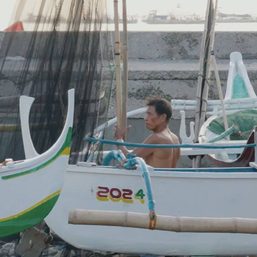
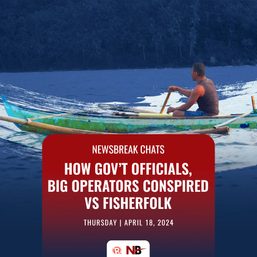
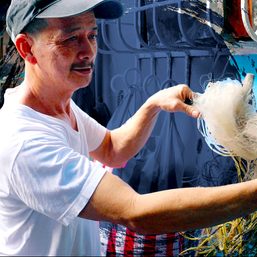
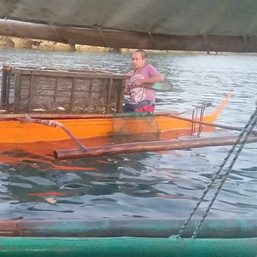
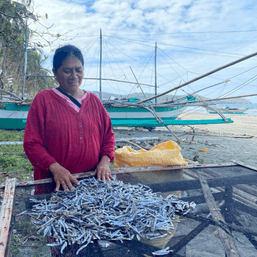
![[DOCUMENTARY] Our 15 kilometers: Small fishers fear losing municipal waters to big operators](https://www.rappler.com/tachyon/2023/12/our-15-kilometers-iuu-fishing-docu.jpg?resize=257%2C257&crop=279px%2C0px%2C720px%2C720px)
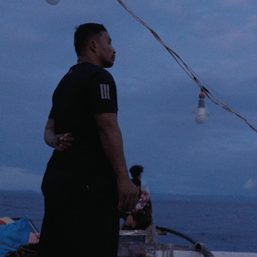
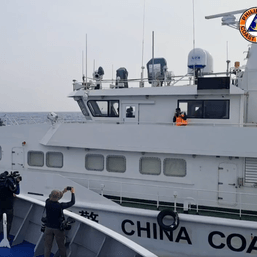
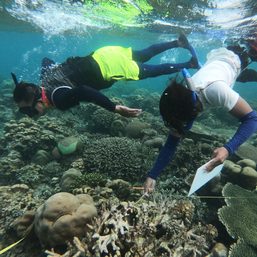





There are no comments yet. Add your comment to start the conversation.